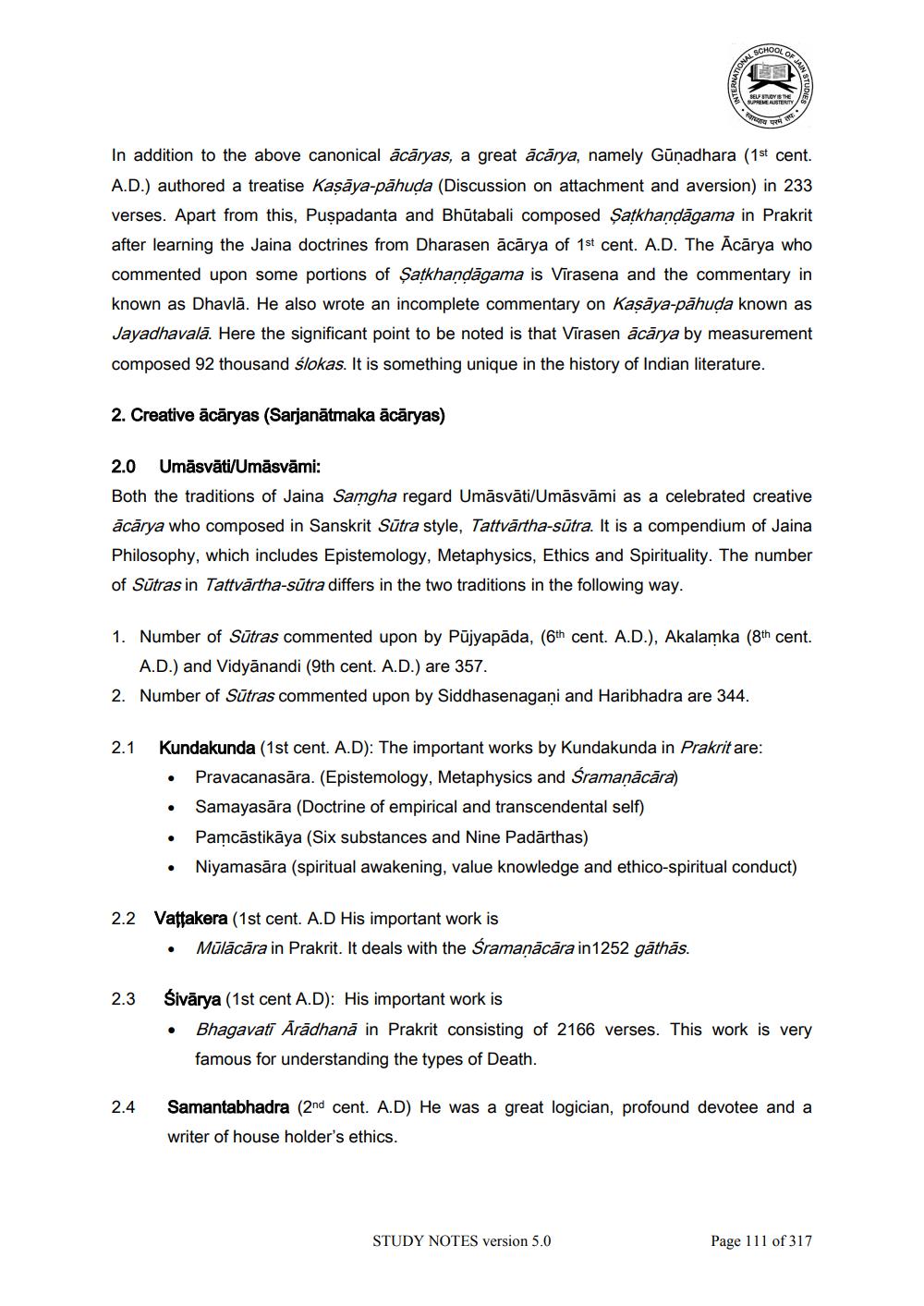________________
In addition to the above canonical ācāryas, a great ācārya, namely Gunadhara (1st cent. A.D.) authored a treatise Kaşāya-pāhuda (Discussion on attachment and aversion) in 233 verses. Apart from this, Puspadanta and Bhūtabali composed Satkhandāgama in Prakrit after learning the Jaina doctrines from Dharasen ācārya of 1st cent. A.D. The Ācārya who commented upon some portions of Satkhandāgama is Vīrasena and the commentary in known as Dhavlā. He also wrote an incomplete commentary on Kasāya-pāhuda known as Jayadhavalā. Here the significant point to be noted is that Vīrasen ācārya by measurement composed 92 thousand ślokas. It is something unique in the history of Indian literature.
2. Creative ācāryas (Sarjanātmaka ācāryas)
2.0 Umāsvāti/Umāsvāmi: Both the traditions of Jaina Samgha regard Umāsvāti/Umāsvāmi as a celebrated creative ācārya who composed in Sanskrit Sūtra style, Tattvārtha-sūtra. It is a compendium of Jaina Philosophy, which includes Epistemology, Metaphysics, Ethics and Spirituality. The number of Sūtras in Tattvārtha-sūtra differs in the two traditions in the following way.
1. Number of Sūtras commented upon by Pujyapāda, (6th cent. A.D.), Akalamka (8th cent.
A.D.) and Vidyānandi (9th cent. A.D.) are 357. 2. Number of Sūtras commented upon by Siddhasenagani and Haribhadra are 344.
2.1
Kundakunda (1st cent. A.D): The important works by Kundakunda in Prakrit are:
Pravacanasāra. (Epistemology, Metaphysics and Sramanācāra)
Samayasāra (Doctrine of empirical and transcendental self) • Pamcāstikāya (Six substances and Nine Padārthas) • Niyamasāra (spiritual awakening, value knowledge and ethico-spiritual conduct)
2.2
Vattakera (1st cent. A.D His important work is
• Mülācāra in Prakrit. It deals with the śramanācāra in 1252 gāthās.
2.3
śivārya (1st cent A.D): His important work is
Bhagavati Arādhanā in Prakrit consisting of 2166 verses. This work is very famous for understanding the types of Death.
2.4
Samantabhadra (2nd cent. A.D) He was a great logician, profound devotee and a writer of house holder's ethics.
STUDY NOTES version 5.0
Page 111 of 317




